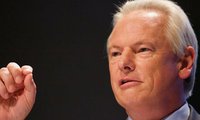The official interim report is available from the communities and victims panel website here. The report contains some of the many comments recommended by the Charities Parliament and Faith to Engage paper put together. Particular reference is given to the shortcomings of ‘stop and search’. The official report notes that “‘Stop and search’ was cited as a major source of discontent with the police. This concern was widely felt by young Black and Asian men who felt it was not always carried out with appropriate respect. We were told that, in at least some instances, this was a motivating factor in the riots, including some of the attacks on the police.”
We found similar findings and suggest a potential way forward.
Oasis is about life changing work with young people, families and communities in urban areas across the UK, so it is no wonder that when the riots hit; the communities we work in were affected. Croydon, Peckham, Enfield, Bristol were all victims of the riots that we saw devastate our communities a few months ago. We decided to tackle the issue head on and asked students from across our hubs and practitioners from across the UK what they thought caused the riots that plagued our television screens over the summer. A meeting was held at the Oasis Centre at which David Cameron’s communities and victims listening panel attended and further work was done across the Oasis family before putting together a highly informative, grass roots document in response to the riots of last summer.
The former Chief of Police in Brixton and Mayoral candidate Brian Paddick sat and listened to young people talk about a ‘grudge with police’ because of the way they are mistreated. There was a particular resentment with the way the police went about ‘stop and search’. One suggestion form a student from Oasis Academy Enfield was ‘before the crime happens, police need to be involved in schools, youth groups and communities’. In Response to young peoples criticisms of the police Brian Paddick agreed: ‘for success, the police need a dialogue [with young people]’. Although the police were heavily criticised on the evening the paper that Oasis Charities Parliament and Faith to Engage has put together unpacks a plethora of reasons why our cities erupted: including a genuine revolt from young people, lack of youth services, the current economic climate, and the break down of our communities. To view more of the findings as well as recommendations for how we move forward click here to view the full report.

 Following the UK riots it’s very easy to get caught up in the rhetoric, so well received by the public at the moment, demanding that something be done about the violent “feral youth” of our communities. To believe that the problem has to do with only one segment of our society, to make this debate about the “have not’s” taking from the “haves”. I believe we should not view these riots in isolation, but rather through the lens of a very different but linked crisis last year, the MPs expenses scandal.
Following the UK riots it’s very easy to get caught up in the rhetoric, so well received by the public at the moment, demanding that something be done about the violent “feral youth” of our communities. To believe that the problem has to do with only one segment of our society, to make this debate about the “have not’s” taking from the “haves”. I believe we should not view these riots in isolation, but rather through the lens of a very different but linked crisis last year, the MPs expenses scandal.









